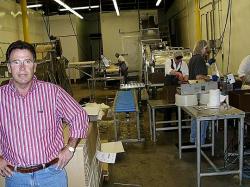Maine Seafood Processor Lays Off 20, May Close Plant
December 21, 2009 | 1 min to read

ROCKLAND, Maine One of the last large seafood processing plants in a city once known for them is laying off its 20-person work force and apparently shutting down its facility.
Oak Island Seafood in Rockland is changing direction but not closing entirely, according to a man who answered the phone at the company Thursday afternoon.
Repeated attempts Thursday to speak with management to clarify its new direction were unsuccessful.
According to Oak Island Seafoods Dow Jones description, the privately held company is a scallop and monkfish producer and is nationally recognized as one of Maines leading producers of fresh and frozen seafood.
To read the rest of the story, please go to: Bangor Daily News
